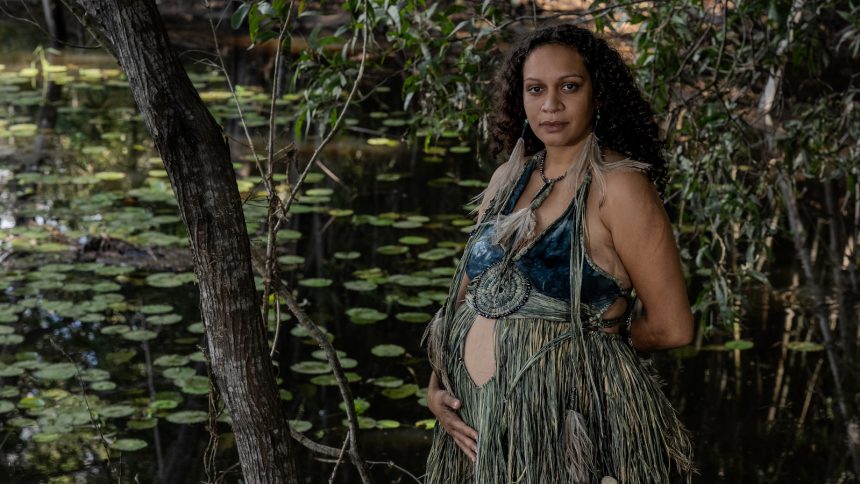In 2019, Australia was on the verge of approving a new coal mine on traditional Wirdi land in Queensland that would have extracted around 40 million tons of coal annually for 35 years. The proposed Waratah coal mine would have decimated a nature refuge and released 1.58 billion tons of carbon dioxide into the atmosphere. However, this did not come to pass, thanks to the tireless advocacy of Murrawah Maroochy Johnson, a 29-year-old Wirdi woman from the Birri Gubba Nation, who initiated a lawsuit against the coal company in 2021 and emerged victorious.
Johnson’s legal battle was not only groundbreaking but also brought about a significant shift in legal procedures. She played a key role in establishing a new legal precedent that compelled court members to visit the residences of First Nations people to listen to their testimonies and perspectives, rather than expecting Indigenous individuals to travel long distances to settler courts. This lawsuit was also the first successful use of Queensland’s human rights law to challenge coal mining, emphasizing the harmful impact of greenhouse gas emissions on Indigenous communities and their cultural practices. Due to this litigation, the mine’s permit was ultimately denied in 2022, with an unsuccessful appeal last year. As a result of her efforts, Johnson is now one of the recipients of the prestigious Goldman Environmental Prize for her outstanding work in grassroots environmental activism.
Over the past few years, Johnson’s life has undergone a significant transformation. As a mother of a toddler and preparing for the arrival of her second child, she continues to be a leading advocate for her community and the environment. In a recent conversation with Grist, Johnson shared insights into her motivation, views on the climate crisis, and advice for aspiring young Indigenous activists.
Q: What drives your commitment to advocacy work for your community?
A: It’s not a choice for me—it’s a responsibility passed down through generations of resistance. The legacy of our ancestors, who fought against colonization and sought to protect our land, culture, and customs, motivates me to continue this vital work. The ongoing injustice faced by Indigenous peoples in Australia demands active resistance, and it is our duty to uphold and preserve our traditions in the face of assimilation attempts.
Q: Can you elaborate on your perspective on climate change?
A: Climate change is not just a crisis, but also an outcome of colonial exploitation of Indigenous lands and resources. The urgency of climate change requires a collective effort to amplify the importance of traditional stewardship practices and sustainability. We must challenge the existing power structures and prioritize Indigenous knowledge to address climate change effectively.
Q: How can we learn from traditional Indigenous ways of life in response to climate change?
A: Drawing on our ancestral wisdom, we can redefine our future by integrating traditional practices into decision-making processes. Climate justice entails recognizing the inherent value of Indigenous knowledge and centering it in all discussions related to environmental protection. By embracing the principles of caring for the land and reestablishing governance based on traditional laws, we can pave the way for a sustainable future.
In essence, Johnson’s work exemplifies the crucial role that Indigenous activism plays in addressing environmental challenges and promoting sustainable practices. Her dedication to protecting her community and heritage serves as an inspiration for future generations of activists committed to preserving our planet for years to come.





